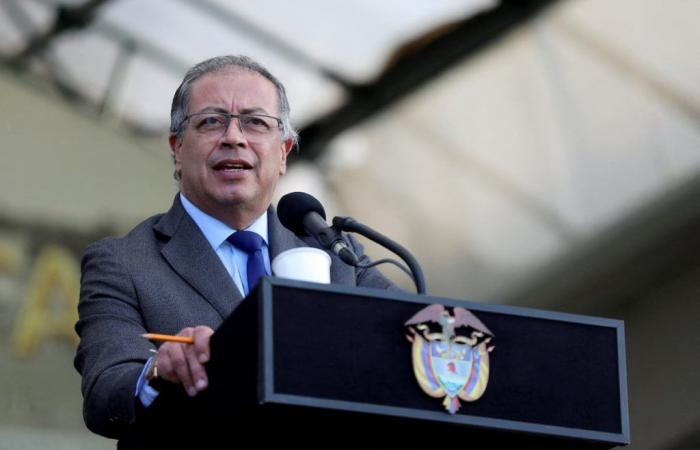Everything has cost Gustavo Petro’s Government a lot of work, as if he had a burden tied to his back. Every step he has taken has met with external and often internal resistance as well. That is why he has been so surprised that he has managed to approve the pension reform so easily, without debate or modifications in Congress. Furthermore, it is not that it is a minor issue: it means changing it almost completely and thus directly affecting the future of all citizens, especially the poorest. This has been one of Petro’s great efforts, and in many of his speeches, during the campaign and later as president, he has referred to “the old men and women” who did not have a monthly allowance because they had dedicated themselves to work. informal. The fact is that it has touched on something that was necessary and urgent: the OECD highlighted that Colombia was the only country in Latin America whose pension system increased inequality.
In the process, he has left some of his critics without arguments. It seemed that the president had decided to stop entering into agreements with the rest of the parties in Congress and implement the changes by force of facts, as he has done with the Health reform, which was rejected in the Chamber. But the truth is that he has continued trying to bring together legislative majorities. The people around him have been weaving these pacts these weeks. When a phone rings in Congress and someone picks it up, Laura Sarabia, Petro’s number two, is often on the other end of the line. The Casa de Nariño, the presidential residence, is not as isolated and closed in on itself as many want to make it out to be.
It has not been the only project that the Government has tried to carry out. In the last 10 days of the legislative period, it pressed the accelerator to approve the educational and labor reforms, but it has not yet achieved sufficient consensus. By approving the educational one in the coming days and moving forward with the labor one, the Executive will complete two years with notable results. The pension is no small thing, but it is insufficient if you take into account all the fronts that Petro opened since he came to the Government. This conclusion does not scare anyone. The president himself has said more than once that everything is going slower than he would like and has often goaded his ministers, feeling that they are not as efficient as they could be. For this reason, even though in Congress he can achieve some important victories, he cannot get a constituent process out of his mind with which to make a total, radical change, the kind of country that he has in mind.
This victory that has been achieved with the pensions does not cover up the fact that other issues in which Petro has put a lot of effort are resisting him. The peace process with the ELN has become so convoluted and moving so slowly that she has lost interest. The president despairs of the guerrilla leaders and urges them to show signs of wanting to achieve peace, but they continue to be immersed in a seventies speech that makes obvious that on the other side of the table they have a left-wing president who, as a young man, even joined a Armed group. Wanting to transform Colombian institutions from the jungle, with a rifle on your shoulder, is anachronistic. The fact is that another similar opportunity will hardly be presented to them. As of today, there is not much hope that an agreement will be reached in the short term. There is a feeling that the two remaining years of the Government, until 2026, will not be enough to put an end to the last guerrilla in Latin America.
Other challenges remain in the air: the energy transition, agrarian reform, modification of the health system. Each of them presents its own difficulties. Paradoxically, the latest good result in Congress contradicts the Petro who complains about the institutional blockade and assures that everything is set up so that nothing changes, so that the “ultraliberal” system that he believes prevails in Colombia is perpetuated forever and ever. . When he has reached a majority, his reforms have passed. Still, he believes it’s not enough and that the entire system needs a big push. He has two years left to try to move that heavy rock.
Subscribe here to the EL PAÍS newsletter about Colombia and here to the channel on WhatsAppand receive all the information keys on current events in the country.
Newsletter
The analysis of current events and the best stories from Colombia, every week in your mailbox
RECEIVE THE






